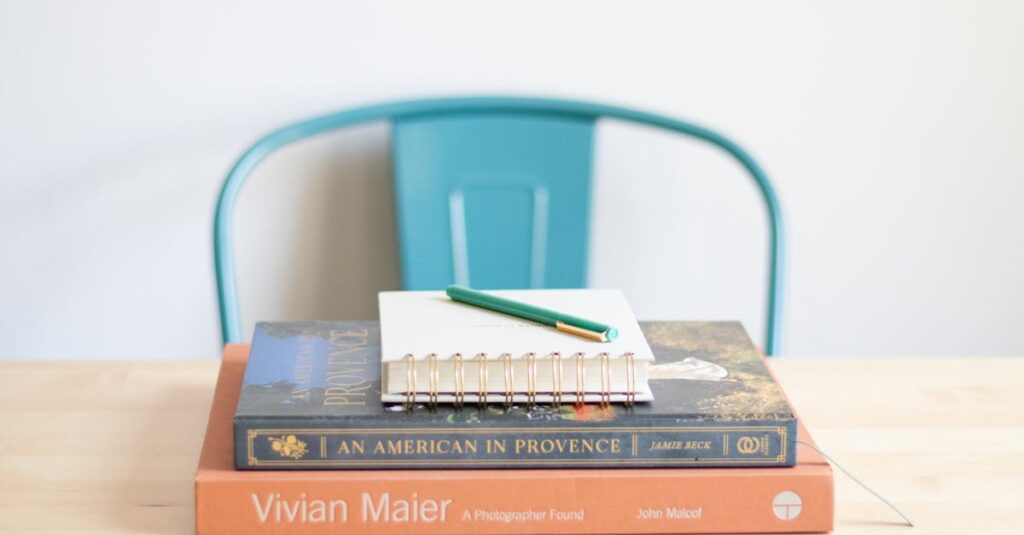As a writer exploring top MFA programs, I’ve discovered that Johns Hopkins University’s Writing Seminars stands among the most prestigious creative writing programs in the United States. This highly selective program has shaped literary voices for over six decades while maintaining its reputation for academic excellence and artistic innovation.
I’m particularly impressed by how Johns Hopkins combines intensive workshops with literary studies to create well-rounded writers. The program’s two-year curriculum offers students the chance to work closely with award-winning faculty members while developing their craft in fiction, poetry, or creative nonfiction. Located in Baltimore’s vibrant literary scene, students benefit from both the program’s rich academic environment and the city’s dynamic cultural landscape.
Key Takeaways
- Johns Hopkins’ MFA in Creative Writing is a prestigious two-year program offering specializations in fiction, poetry, and creative nonfiction, accepting only 8-10 students annually.
- The curriculum combines intensive writing workshops, literature courses, and craft seminars, totaling 30 credit hours with personalized mentorship from award-winning faculty.
- Students receive full funding including a $30,000 annual stipend, tuition remission, and teaching assistantship opportunities, plus access to additional fellowships and grants.
- The program features a strong publishing track record with notable alumni like Louise Erdrich and John Barth, offering extensive industry connections and career development resources.
- Located in Baltimore, students benefit from a vibrant literary community with 35+ annual events, active student organizations, and cross-departmental study opportunities.
Johns Hopkins MFA Creative Writing
The Johns Hopkins MFA Creative Writing Program operates through The Writing Seminars department, offering a comprehensive two-year course of study. My research shows the program enrolls 8-10 students annually across three distinct tracks: fiction, poetry and creative nonfiction.
Program Structure and Specializations
The MFA curriculum combines intensive writing workshops with literature seminars and craft courses. Students complete:
- 4 writing workshops in their chosen genre
- 3 literature courses examining classical and contemporary works
- 2 craft seminars focused on technical elements of writing
- 1 teaching practicum preparing students for classroom instruction
- 30 credit hours total spread across four semesters
| Semester Requirements | Credits |
|---|---|
| Writing Workshops | 16 |
| Literature Courses | 9 |
| Craft Seminars | 3 |
| Teaching Practicum | 2 |
Faculty and Mentorship Opportunities
The program pairs students with distinguished faculty mentors who provide personalized guidance:
- Monthly one-on-one manuscript consultations with assigned faculty advisor
- Access to visiting writers through the Reading Series program
- Collaboration opportunities with Johns Hopkins literary magazine editors
- Teaching assignments under faculty supervision starting second semester
- Individual career counseling sessions with program directors
- Brad Leithauser (Poetry)
- Alice McDermott (Fiction)
- Wayne Biddle (Nonfiction)
- Mary Jo Salter (Poetry)
- James Arthur (Poetry)
- David Yezzi (Poetry)
Academic Requirements and Admissions
The Johns Hopkins MFA Creative Writing program maintains rigorous academic standards with a competitive selection process. Each application undergoes thorough evaluation by the faculty admissions committee.
Application Process
Applications open annually on September 1 with a December 15 deadline for fall admission. The required materials include:
- Official transcripts showing a bachelor’s degree from an accredited institution
- Three letters of recommendation from academic or professional sources
- Personal statement (1,000 words) detailing literary interests & career goals
- $75 application fee through the online portal
- GRE scores (optional as of 2023)
- TOEFL/IELTS scores for international applicants (minimum 100 TOEFL or 7.0 IELTS)
Portfolio Guidelines
The writing sample forms the centerpiece of the MFA application, with specific requirements per genre:
Fiction
- 25-40 pages of prose fiction
- Double-spaced in 12-point font
- Up to 3 short stories or novel excerpts
- Samples must demonstrate narrative technique & character development
- 10-15 pages of poetry
- Single or double-spaced formatting
- 8-12 individual poems
- Various forms & styles encouraged
- 25-40 pages of literary nonfiction
- Double-spaced in 12-point font
- Up to 3 essays or book chapters
- Personal essays memoir or literary journalism accepted
Program Highlights and Unique Features
The Johns Hopkins MFA Creative Writing Program offers distinct features that set it apart from other graduate writing programs. The program combines intensive writing workshops with interdisciplinary study opportunities to create a comprehensive creative writing education.
The Writing Seminars Experience
The Writing Seminars provide intimate workshop settings with 4-5 students per instructor. I’ve found these workshops include manuscript critiques, craft discussions, individual conferences with faculty mentors 3 times per semester. Students participate in 20 public readings throughout the academic year at venues like the Ivy Bookshop, Bird in Hand, Red Emma’s Bookstore. The program hosts 12-15 visiting writers annually for craft talks, readings, and one-on-one mentoring sessions with current students.
| Workshop Components | Frequency |
|---|---|
| Individual Conferences | 3 per semester |
| Public Readings | 20 per year |
| Visiting Writers | 12-15 per year |
| Workshop Size | 4-5 students |
Cross-Departmental Studies
Students enhance their writing through courses in other Johns Hopkins departments:
- Take classes in History of Art for visual storytelling techniques
- Enroll in Theatre Arts courses to study dramatic structure
- Participate in Film & Media Studies to explore narrative adaptation
- Access Philosophy department offerings for conceptual framework development
- Study foreign languages to expand translation capabilities
The program allows 2 courses outside The Writing Seminars, enabling students to integrate diverse academic perspectives into their creative work. Cross-departmental collaborations create opportunities for interdisciplinary projects such as ekphrastic poetry collections, multimedia narratives, and research-based creative nonfiction.
Career Outcomes and Alumni Success
Johns Hopkins MFA graduates achieve significant success in publishing, teaching, editing, and arts administration positions. The program’s extensive network and career support services connect graduates with opportunities across the literary landscape.
Notable Alumni
Johns Hopkins Writing Seminars has produced acclaimed authors, poets, and literary professionals, including:
- Louise Erdrich: Winner of the National Book Award and Pulitzer Prize for fiction
- John Barth: Recipient of the National Book Award and PEN/Malamud Award
- Mary Jo Salter: Award-winning poet and former Editor of The Norton Anthology of Poetry
- Tom Sleigh: Distinguished poet with multiple Guggenheim Fellowships
- P.J. Mark: Literary agent at Janklow & Nesbit Associates
- ZZ Packer: Author of “”Drinking Coffee Elsewhere”” and Guggenheim Fellow
- Matt Klam: O. Henry Award winner and New Yorker contributor
- The Hopkins Review: Students serve as editorial assistants gaining hands-on publishing experience
- The Doctor T.J. Eckleburg Review: Digital literary journal offering publishing internships
- Publishing partnerships with:
- Penguin Random House
- W.W. Norton
- Grove Atlantic
- Farrar Straus & Giroux
- Annual anthology of student work distributed to literary agents publishers
- Faculty connections to:
- Literary magazines
- Publishing houses
- Literary agencies
- Access to:
- Writing conferences
- Book fairs
- Industry networking events
Campus Life and Writing Community
The Johns Hopkins MFA creative writing program cultivates a dynamic literary environment through regular events gatherings. The campus features dedicated writing spaces in the Mergenthaler Hall plus access to five specialized libraries housing over 4.2 million books.
Literary Events and Readings
The Writing Seminars hosts 35+ literary events each academic year in the Mudd Hall Auditorium. These include the Reading Series featuring acclaimed authors like Zadie Smith Jonathan Franzen, student thesis readings each semester, poetry slams in the Glass Pavilion, faculty book launches at Bird in Hand Bookstore, and craft talks by visiting writers. The President’s Reading Series brings 3 distinguished writers annually for public readings workshops.
Student Organizations
Active student groups enhance the writing community through collaborative initiatives:
- Writers’ Guild coordinates weekly workshops peer critiques for 25-30 MFA students
- Literary Arts Magazine produces 2 print issues annually featuring student work
- Writing Center employs 8 MFA students as tutors for undergraduate consultations
- Reading Series Committee organizes author visits venue arrangements logistics
- International Writers’ Collective brings together 15+ students from diverse backgrounds
- Poetry Working Group meets biweekly for craft discussions manuscript reviews
- Digital Publishing Workshop teaches InDesign WordPress skills through 6 hands-on sessions
The organizations maintain dedicated spaces in the Greenhouse writing center, including meeting rooms critique spaces a small library of literary journals. Students engage in leadership roles managing budgets coordinating events building professional skills alongside their creative work.
Financial Aid and Funding Options
The Johns Hopkins MFA Creative Writing Program provides comprehensive financial support through full funding packages for all admitted students. The program’s commitment to supporting writers includes teaching assistantships, fellowships, grants, and additional funding opportunities.
Teaching Assistantships
Teaching assistantships at Johns Hopkins provide $30,000 annual stipends plus full tuition remission. First-year MFA students teach one composition course per semester, while second-year students lead introductory creative writing workshops. Teaching assignments include:
- Expository Writing Program instruction for first-year students
- Introduction to Fiction & Poetry Writing courses
- Writing Center tutoring positions
- Summer teaching opportunities with competitive compensation
- Turnbull Fellowship: $5,000 award for outstanding fiction writers
- Academy of American Poets Prize: $1,000 for exceptional poetry manuscripts
- Dean’s Teaching Fellowship: $3,000 supplement for advanced pedagogical projects
- Conference Travel Grants: Up to $1,500 for presenting at literary conferences
- Summer Research Awards: $3,500 for creative projects during summer terms
| Award Type | Amount | Duration |
|---|---|---|
| Teaching Stipend | $30,000 | Annual |
| Turnbull Fellowship | $5,000 | One-time |
| Poets Prize | $1,000 | One-time |
| Teaching Fellowship | $3,000 | One-time |
| Travel Grant | $1,500 | Per conference |
| Research Award | $3,500 | Summer term |
Writing Workshops
I’m convinced that the Johns Hopkins MFA Creative Writing Program stands as a beacon of excellence in creative writing education. Its blend of intensive workshops personal mentorship and robust funding makes it an ideal choice for serious writers seeking to elevate their craft.
The program’s stellar faculty intimate class sizes and strong track record of alumni success demonstrate its commitment to nurturing literary talent. I believe the Writing Seminars’ approach to combining traditional workshop elements with interdisciplinary studies creates an unparalleled educational experience.
For aspiring writers who are ready to immerse themselves in a demanding yet rewarding program Johns Hopkins offers everything needed to launch a successful writing career. The vibrant Baltimore literary scene and extensive professional networks only add to its appeal as a top-tier MFA destination.



